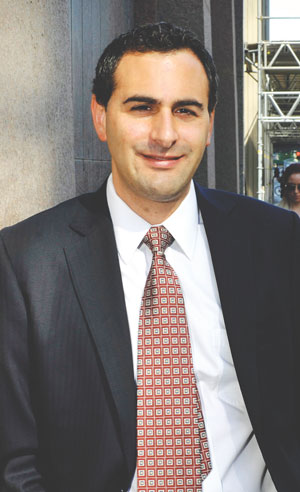Class counsel can’t in any way benefit from a cy-près award, a Superior Court judge found in a decision rejecting a chosen organization set to receive funds left over from a settlement agreement.

In
Sorenson v. easyhome Ltd., a class action related to misrepresentation of the share price, Justice Paul Perell approved all terms of the settlement except for the designation of who would receive the residue funds after all class members have received their money.
The idea behind a cy-près payment is to indirectly benefit class members who often choose a
charity related to their cause to donate the remaining funds to. But class counsel should in no way benefit from the donation, said Perell. In Sorenson, he rejected the chosen charity because class counsel’s law firm had previously worked for the organization on a pro bono basis.
The class members had planned to donate the amount to the Canadian Foundation for Advancement of Investor Rights. When it came to that choice, Perell agreed with the defendants who argued that a different recipient should get the money because the firm representing the plaintiffs, Siskinds LLP, had links to FAIR Canada.
Perell’s June 10 order notes easyhome raised the issue after learning that Siskinds and FAIR Canada had “linkages that were not known to the defendants before the settlement.”
Perell acknowledged that the purpose of a cy-près award is to indirectly remedy class members.
“However, in the case at bar, if FAIR Canada is the cy-près recipient, then class counsel also obtains an indirect benefit because they can take credit for the class members’ contribution to FAIR Canada, another client of the firm,” he wrote.
“Further, for those that are cynically minded, there is the optics or appearance of a business development synergy in class counsel’s supporting FAIR Canada’s mission and this synergy would be another indirect benefit to class counsel.”
The decision is a part of the courts’ increasing sensitivity around settlement distributions, says Jonathan Bida, an associate in the litigation group at Koskie Minsky LLP in Toronto.
“The courts are not just concerned about the settlement,” he says.
“There’s a lot more scrutiny now in how the money is going to the class. It’s part of a growing trend where the courts are concerned, and rightfully so, that the claims distribution process be, I guess, effective and appropriate.”
The judge said it would be “inappropriate” for lawyers to profit from the process and suggested the courts shouldn’t have to look into how significant that benefit is.
“In my opinion, however well meaning, it is inappropriate for class counsel to indirectly benefit from a cy-près distribution and it is inappropriate for class counsel to have any direct connection with a recipient of a cy-près distribution,” wrote Perell.
“I think that it is undesirable for courts to have to determine whether the connection rises to any particular level. Given that there are many other worthy recipients of cy-près
distributions, in my opinion, in the circumstances of the case at bar, it is not in the best interests of class members to have a cy-près distribution to FAIR Canada, and I do not approve this aspect of the proposed settlement.”
Perrell’s concern wasn’t that the donation to FAIR Canada wouldn’t benefit class members, says Bida. “He does accept that idea,” he says.
“I don’t think that’s the real issue in this case. The issue is obviously the connection with Siskinds.” In all fairness to Siskinds, FAIR Canada was a pro bono client, adds Bida.
“It’s not like they were directing a payment to a paying client,” he says.
“But I gather from reading this decision that Justice Perell was concerned about perception.”
From a practical point of view, precluding every organization that has had a link to the class counsel’s firm wouldn’t be viable, adds Bida, who notes that a solicitor-client relationship appears to be the “dividing line.”
Sorenson involved a nearly $2.3-million settlement in an action against easyhome. While Perell had concerns about the cy-près designation, he found Siskinds’ request for legal fees of about $560,000 to be “fair and reasonable.”

 In Sorenson v. easyhome Ltd., a class action related to misrepresentation of the share price, Justice Paul Perell approved all terms of the settlement except for the designation of who would receive the residue funds after all class members have received their money.
In Sorenson v. easyhome Ltd., a class action related to misrepresentation of the share price, Justice Paul Perell approved all terms of the settlement except for the designation of who would receive the residue funds after all class members have received their money.